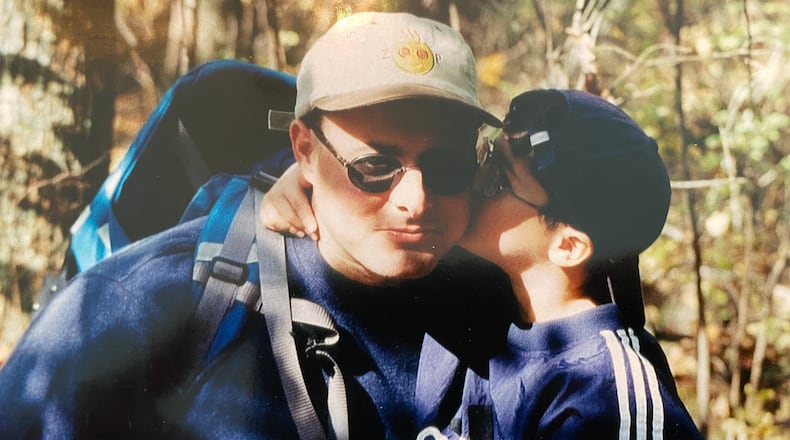Like thousands of others, Matthew Bocchi lost a loved one on Sept. 11, 2001, and struggled to deal with the loss in the years to come.
Now, after years of dealing with the death of his father, sexual abuse by an uncle and a subsequent fall into addictions, Bocchi has written “Sway,” which, according to his publisher, Post Hill Press, is the first memoir told by a child of a 9/11 victim.
“No matter how far you fall, you can always rise again,” Bocchi said. “No matter how far you stray, you can always find your way home. And no matter how wide you sway, you can always pick up the pieces and stand tall.”
Bocchi, now 28, was in school when two jets, overtaken by hijackers, hit the World Trade Center where his father was working. John Bocchi was working on the 105th floor of One World Trade Center in Lower Manhattan when the nation’s deadliest terror attack began nearly 19 years ago.
“I remember myself and another student getting pulled out of the classroom,” Bocchi said. “The principal and teachers said my dad was safe, but they put us into another classroom by ourselves and we just played computer games for a while. Then I noticed more and more students being released, and we were the only ones there.
“The school bus ride on the way home was virtually empty.”
Bocchi then remembers “a chaotic scene” with “tons of people” being at his house when he got home. During the following days, Bocchi would call his father’s cellphone, “asking him to come back, as if he had a choice.”
About a week later, law enforcement authorities came to his house to tell John Bocchi’s family that his remains had been recovered.
“My mom was on the phone, and when she saw the authorities pull up, she told whoever she was talking to, ’I think I’m getting my call.’ She made a sound I’d never heard before and never will again, when she told us, ’Daddy’s not coming home.’”
Through the years, Bocchi was sexually and psychologically abused by an uncle, who told him his father had jumped from One World Trade Center, which was not true. That abuse, compounded by grief over his father’s death, led Bocchi into years of alcohol abuse.
“I was just over a year sober when I went back to work in finance, then got laid off,” Bocchi said. “Soon afterward, I got my book deal and am now trying to transition into a full-time author and inspirational speaker.”
Bocchi, a New Jersey resident, got the idea of a memoir after “going around speaking to groups and just telling my story. I absolutely believe I have one of those addictive personalities and dispositions, and 9/11 absolutely played a role in my substance abuse. But I think the sexual abuse from my uncle was the biggest catalyst.”
While Bocchi believes the death of Osama bin Laden put a “public face” on 9/11, he also believes others involved in the attack haven’t been held responsible.
About the Author
The Latest
Featured



